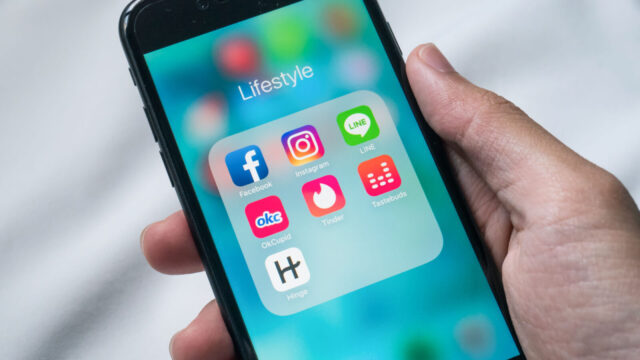
The digital age has ushered in a new era of openness, breaking down barriers that once stifled conversations about sexuality and health. As society becomes more accepting, we’re witnessing a shift towards embracing science and technology to explore these topics. This blog post delves deep into the intersection of sexuality, health, and the digital era, offering insights into how technology is reshaping our understanding and approach to these fundamental aspects of human existence.
1. The Digital Era’s Impact on Sexual Education

The internet has revolutionized sexual education. Gone are the days of awkward classroom discussions; now, individuals can access a plethora of online resources, videos, and platforms that offer accurate and comprehensive information. This democratization of knowledge has empowered many to make informed decisions about their bodies and relationships. However, with the vastness of the internet comes the challenge of misinformation. It’s crucial to discern credible sources from the noise, emphasizing the importance of digital literacy in the realm of sexual education.
2. Online Communities: Empowering Discussions
Online forums and communities such as Jerkmate.com website have become havens for candid discussions about sexuality and health. The cloak of anonymity often encourages more open conversations, allowing individuals to share experiences and seek advice without fear of judgment. While these platforms can be empowering, they’re not without risks. Misinformation can spread, and not all advice is professional or sound. Thus, while these communities can be invaluable, it’s essential to approach them with a discerning mind.
3. Access to Healthcare: Telemedicine and Sexual Health
Telemedicine has emerged as a game-changer for sexual health. Virtual consultations offer unparalleled convenience and privacy, allowing individuals to seek professional advice without the barriers of distance or stigma. However, the digital nature of these services raises ethical considerations, from ensuring patient confidentiality to providing the same standard of care as in-person visits. As telemedicine continues to grow, it’s vital to address these concerns to ensure that all individuals receive the care they deserve.
4. Dating Apps and Changing Dynamics

The rise of dating apps like Tinder, Bumble, and Hinge has dramatically reshaped modern relationships. These platforms offer unique opportunities to connect with potential partners beyond one’s immediate social circle, breaking geographical and cultural barriers. However, they also present challenges, especially for those new to the digital dating scene. Navigating the complexities of online communication, interpreting text without tone, and ensuring mutual consent in digital interactions can be daunting. As technology becomes an integral part of our romantic endeavors, it’s crucial to prioritize healthy communication, set clear boundaries, and remain authentic in our online personas.
5. Sexual Well-Being Apps: Myth vs. Reality
The digital marketplace, particularly app stores, are flooded with tools and platforms promising to enhance sexual well-being. From meditation apps to guided exercises, some are grounded in scientific research and offer genuine benefits. However, others, with flashy marketing and bold claims, lack credibility and can mislead users. It’s essential to differentiate between these offerings, seeking out evidence-based solutions backed by professionals. Being wary of too-good-to-be-true promises is crucial. As consumers, we must be proactive, do our research, and discern myth from reality to ensure our well-being.
6. Digital Pornography: Balancing Fantasy and Reality
Digital pornography, easily accessible with a few clicks, has profound implications for our perceptions of sexuality, relationships, and body image. While it can be a source of pleasure, exploration, and even education for some, it also poses significant risks. Overconsumption can lead to fostering unrealistic expectations, potential addiction, and even relationship strains. It’s crucial to promote media literacy, especially among younger audiences, ensuring that individuals can differentiate between staged fantasy and real-life intimacy. Encouraging open conversations and responsible engagement with digital content is the way forward.
7. Sexual Identity and Online Exploration

For many, the digital realm has been a beacon of hope, providing a sanctuary for exploring their sexual identity. Online support groups, forums, and resources, especially tailored for the LGBTQ+ community, offer invaluable guidance, acceptance, and a sense of belonging. These platforms have been life-changing for many. However, the digital world is not without its dark corners. Online harassment, trolling, and cyberbullying remain pressing concerns, especially for marginalized groups. It underscores the urgent need for platforms to take responsibility, ensuring inclusive, respectful, and safe spaces for all users.
8. Cybersecurity and Privacy Concerns
In our digital age, sharing intimate content online, whether through messaging apps or social media, comes with inherent risks. From revenge porn, which can have devastating emotional impacts, to data breaches that expose personal details, the challenges are manifold. It’s imperative to prioritize consent and respect in all digital interactions, understanding the permanence of online sharing. Equipping oneself with knowledge about privacy settings, understanding platform terms, and using encryption tools can be vital steps in protecting personal information and maintaining online safety.
9. Digital Tools for Sexual Health Tracking
In recent years, apps designed to track menstrual cycles, fertility, and overall sexual health have seen a surge in popularity. These tools, when used correctly, can offer invaluable insights for family planning, reproductive health, and understanding one’s body better. However, with these advancements come ethical dilemmas. Data privacy, potential misuse of intimate details, and sharing with third parties are concerns that users must be aware of. It’s essential for users to be informed, read terms of service, and be cautious about where and how their sensitive data is used and stored.
10. Online Resources for Addressing Sexual Health Issues

The internet, with its vast expanse, is a treasure trove of information on almost every topic, including sexual health. But discerning reliable sources from misleading ones can be challenging. It’s crucial to verify the credibility of online resources, especially when it concerns health decisions. Organizations like Planned Parenthood, the World Health Organization, and many others have established their reputation over the years. They offer sound advice, research-backed information, and resources on sexual health, ensuring users receive accurate guidance.
11. The Future of Sexual Health in a Digital Age
The intricate fusion of sexuality, health, and technology is still in its nascent stages, with much left to explore and understand. As we look to the future, we can anticipate further advancements in immersive experiences like virtual reality, more accessible telehealth services, and data analytics that offer personalized insights. Embracing these innovations responsibly, understanding their implications, and fostering open dialogues will be key to navigating the evolving landscape of sexual health in our increasingly digital world.
Final Musings
In this digital era, as we break barriers and taboos, it’s essential to approach the intersection of sexuality and health with an informed and open mind. Embracing technology responsibly and fostering open dialogues will pave the way for a more enlightened and inclusive future.









